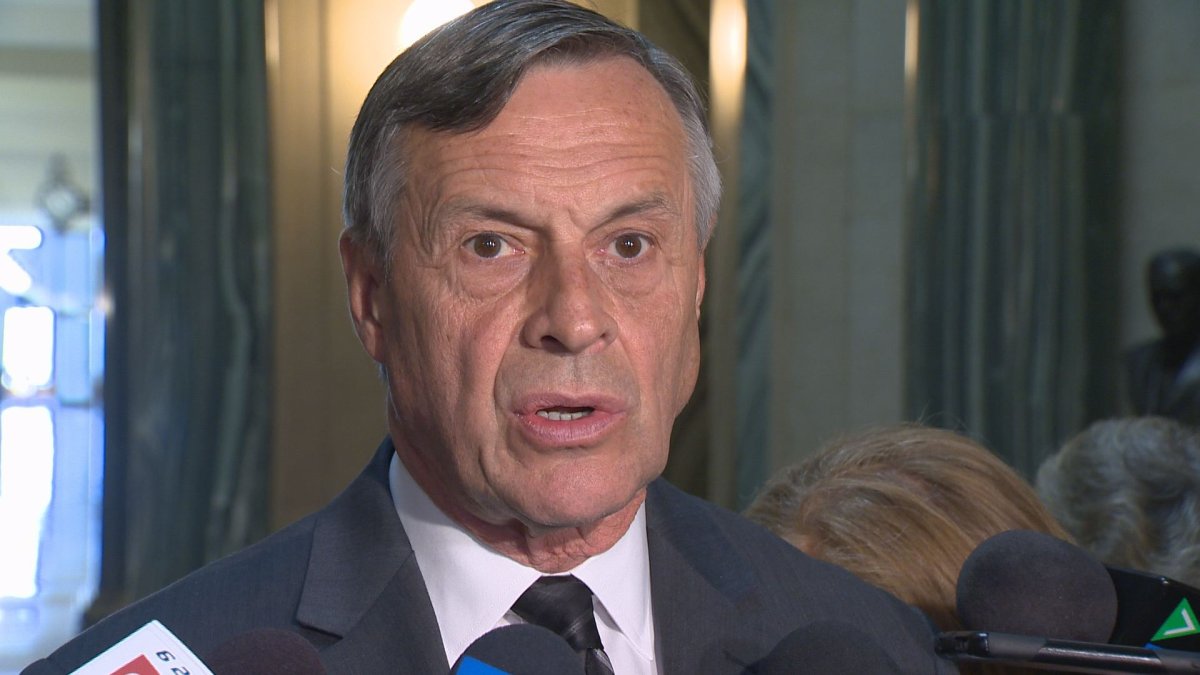If you haven’t heard already, the recreational use of cannabis is legal in Canada. Saskatchewan was the final province to roll out their legalization framework, March 14 this year.

At that point, it was a couple months before municipalities like Regina and Saskatoon were able to approve their own local bylaws. Then, it was a push for retailers to try and be open on Oct. 17. A very small handful pulled that off, Global News has been able to confirm five.
MORE: For the launch of our weekly newsletter Cannabis IQ, we’re giving away $100 Visa gift cards. Click here to find out more.
Minister responsible for the Saskatchewan Liquor and Gaming Authority (SLGA) Gene Makowsky said the province did the best with the timeline imposed by Ottawa.
“SLGA and several government departments worked very hard on this file, a lot of hours put into it. I’ll remind you this is the federal Liberal government’s initiative and we had been asking ever since it was announced for more time,” Makowsky said.
The originally planned legalization day was July 1, 2018. However, the legislation was held up in the senate, and legalization was pushed back to Oct. 17.
Makowsky added Saskatchewan is not alone in having limited options to purchase legal cannabis out of the gate. There is only one licensed store in all of British Columbia and the new Ontario Progressive Conservative government scrapped the Liberal plan for government-run stores.
“Today’s not the end or the destination. It’s an ongoing process that we continue to work with; and again, keep in mind, not our government’s initiative but one from the feds and we’re doing as best we can,” Makowsky said.
The minister added that the change in government leadership brought on by the retirement of former premier Brad Wall may have delayed things “a little bit,” but he feels Saskatchewan has caught up.
SLGA critic Nicole Sarauer said she’s heard a lot of concern about the Saskatchewan Party and SLGA “dragging their heels” on this file, and attributes it to the initially sparse retail landscape.
“We hope that it will help to significantly reduce the black market, but it’s looking so far that won’t be the case. Especially when we have such a limited amount of permits,” Sarauer said.
Saskatchewan currently has 51 retail permits that have all been spoken for. The province plans to evaluate adding more in a year.
“We already know that probably isn’t going to be enough to meet the demand in Saskatchewan, so then all of those people will turn to the black market,” Sarauer said.
At the opening of Eden, just outside Pilot Butte, Sask., two people told Global News they plan on going back to the black market after seeing legal prices.
Sarauer also worries the province is missing out on revenue by having a limited number of permits and so few stores open at the outset.
The government has not put forward estimates on the cost or revenue associated with legalization.
Impaired Driving
In addition to the black market, impaired driving is going to be another criminal area watched closely now that cannabis is legalized. Justice Minister Don Morgan said he is hopeful people will know not to smoke and drive.
In Saskatchewan, the THC impairment limit is five nanograms per litre of blood.
“We have a number of officers that are trained up, we’ve got equipment that the federal government is in the process of approving so we will be able to do blood tests and urine tests,” Morgan explained.
With new testing equipment, and THC lingering in the body longer than alcohol it is anticipated some impaired driving charges will be challenged in court. Morgan says he’s confident in the court’s ability to handle the caseload, and extra resources can be deployed if needed.
In addition to worrying about road safety, Morgan said the provinces were also forced to reckon with how legalized cannabis would handle workplace safety, public health and how it would be kept away from schools and young people.
“It would have been better for our province had it not happened,” Morgan said.
Pardoning possession
The federal Liberals also announced Wednesday that they would be introducing legislation to pardon people charged with simple pot possession. People would not have to pay for the pardon or go on a waiting list.
It costs $631 to apply for a pardon and the waiting list can be three to 10 years.
Sarauer said she’s happy about the move.
“It’s very important because largely these charges impacted the most vulnerable people in our province and it’s a very significant barrier to employment for example,” Sarauer said.
Sarauer added she would also like to see past simple possession convictions expunged and/or pardons for probation breach charges associated with simple possession.
The province doesn’t anticipate a strain on legal resources since this is a federal matter. However, Morgan said he’d rather not see a blanket approach.
“Without regard to looking at the nature of the offence, how many offences an individual, what the quantities were, just to say – no we’re wiping the slate clean – there should be some analysis given, but it’s a federal issue,” Morgan said.




Comments